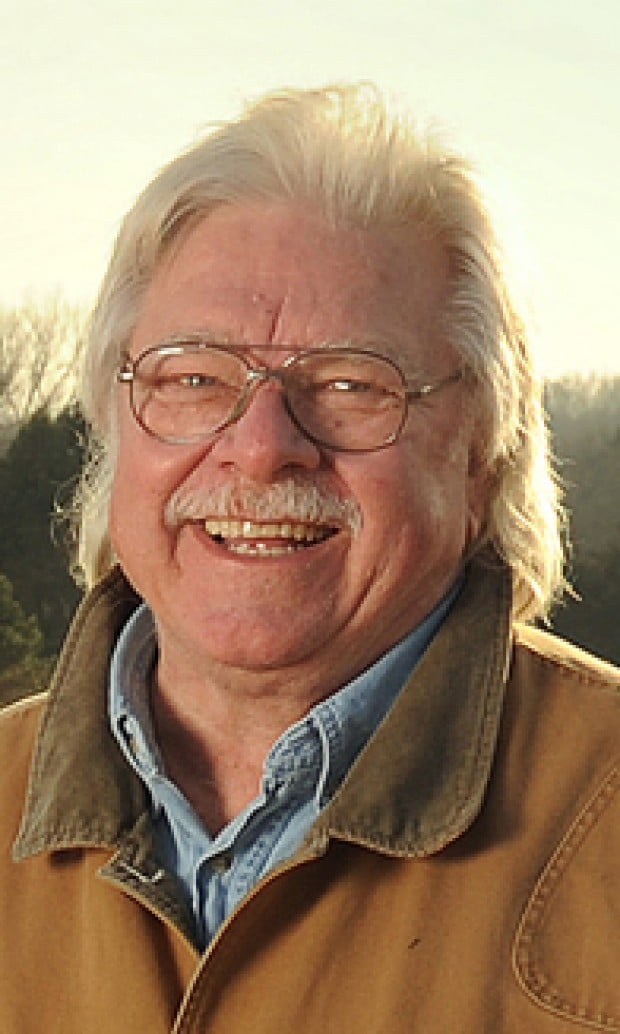 The Reluctant Pilgrim: A Skeptic’s Journey into Native Mysteries by Roger Welsch
The Reluctant Pilgrim: A Skeptic’s Journey into Native Mysteries by Roger Welsch
(University of Nebraska Press, 2014)
“What is going on with genial, folksy Roger Welsch?” readers may ask about his most recent publication, The Reluctant Pilgrim: A Skeptic’s Journey into Native Mysteries. Nationally known for his “Postcards from Nebraska” segments that aired for thirteen years on the CBS Good Morning show, the overall clad writer seems to have departed from his typical, humorous take on rural life, both past and present. That is what readers have come to expect from one of Nebraska’s most prolific writers. Welsch’s earliest publications were collections of often humorous folktales: A Treasury of Nebraska Pioneer Folklore (1984), Shingling the Fog and Other Plains Lies (1986), Catfish at the Pump: Humor and the Frontier (1986), and Mister, You Got Yourself a Horse: Tales of Old-Time Horse Trading (1987). Lately, he has turned to more personal stories, such as It’s Not the End of the World, But You Can See It From Here (1990), Love, Sex, and Tractors (2000), Everything I Know About Women, I Learned From My Tractor (2002); Ode to the Outhouse (2013), A Life with Dogs (2004), Weed’em and Reap (2006), and Golden Years My Ass:, Adventures in Geriatric Indignity (2010) . During his career, Welsch, an anthropologist and folklorist, has published “forty-some-odd books” (a pun the author must have enjoyed).
The Reluctant Pilgrim may be a giant leap for some of his fans, many of whom consider Welsch a cross between Mark Twain and William Faulkner. Devotees, however, will not be surprised, for he has long had strong ties with the Omaha, Pawnee, and Lakota. An adopted member of the Omaha and Lakota tribes, he has published numerous works dealing with Native subjects, like Omaha Tribal Myths and Trickster Tales (1991); Touching the Fire: Buffalo Dancers, the Sky Bundle, and Other Tales (1992); Uncle Smoke Stories: Nehawka Tale of Coyote the Trickster (1994); and Embracing Frybread: Confession of a Wannabee (2012). In addition, Welsch and his wife Linda have not only adopted an Omaha child, but after a lengthy battle, Welsch helped the Pawnee reclaim hundreds of human remains from the Nebraska State Historical Society and allowed the tribe to bury them on his land. Moreover, they have also returned their home and real estate holdings, once Pawnee lands, to the Pawnee nation.
So, when Welsch shares his spiritual journey into the Great Mysterious, the Lakota phrase for God, he does so from personal experience. He explains, “my associations with Native American communities have given me the permission, means, and access to things not available to those who have not had such associations”(xi). The narratives in this book describe mystical experiences that have occurred in his life, experiences that he explains could happen to anyone if he or she is open to “a world of wonder and awe” (xii). He explained in a 1998 promo for CBS, “I like my six minutes to say something about the extraordinary nature of ordinary people, who I believe are the backbone of this country.” The Reluctant Pilgrim, in fact, expands on the extraordinary in ordinary people, but this time in a spiritual sense.
“Something Is Going on,” Welsch reiterates throughout this book as he describes the mysteries that he has encountered throughout his life, such as the accumulation of round stones given to him by far-flung acquaintances, the unsuccessful search for a bison skull only to stumble upon an ancient one while skinny-dipping in his own river, and the gift of the sacred bald eagle feather where he learns that you receive by giving. A storyteller in the best Native tradition, Welsch leads us through the many mystic events in his life with honesty and candor.

Photo by Eric Gregory
Raised in the German Lutheran church, Welsch has come to challenge zealots who “see nothing at odds with what the panel of old men ruling their church tell its flock to see” and “accept sacred texts without wonder or question” (126). Welsch believes that instead of dogma and rigidity, we should embrace questions. “The excitement of life and the truth of what is beyond lie in questions, not in answers” (249). As his Native friends have explained to him, “the white man is sadly educated out of seeing and appreciating the mysteries of life flowing constantly around him” (251). He believes that people have be experiencing the Great Mysterious throughout history and that “almost anyone can have a woableza, an awakening or realization, if they only listen” (169).
From a writer’s point of view, what impresses me most about The Reluctant Pilgrim is Welsch’s courage in revealing his very personal experiences and strong beliefs, some with which his readers may not agree. “You are really going to think I am crazy when I tell you this one,” he admits in “The Lesson of the Dolman” (63). Later, in “Lessons from Real Shock and Awe,” he concedes, ” I am already telling more about my spiritual experiences than I ever thought I would reveal to people outside my family and direct circle of friends” (133). This is not simply a tell-all airing of laundry like many recent bestselling works of nonfiction but lessons we can learn if we are receptive to mystic experience, to the belief that Something Is Going On. Welsch’s vulnerability makes this one of the bravest books I have ever read. From now on, whenever I find myself censuring my own writing for fear of revealing too much of myself, I will remember Roger.
P.S. For a thorough and entertaining article on Roger Welch, check out “Author, Humorist, Folklorist Roger Welsch Tells the Stories of the American Soul and Soil.”

Sounds like a Must Read for me. Thanks.
Well, you sure got this right. I knew I was putting some part of my anatomy on the chopping block with this one but as I explain it in the poetical language of the Academe and literati, “I’m too old to give a shit.” Wait till you see my next and last effort for a while, WHY I’M AN ONLY CHILD AND OTHER SLIGHTLY NAUGHTY PLAINS FOLKLORES, U of N Press, when else…April 1.